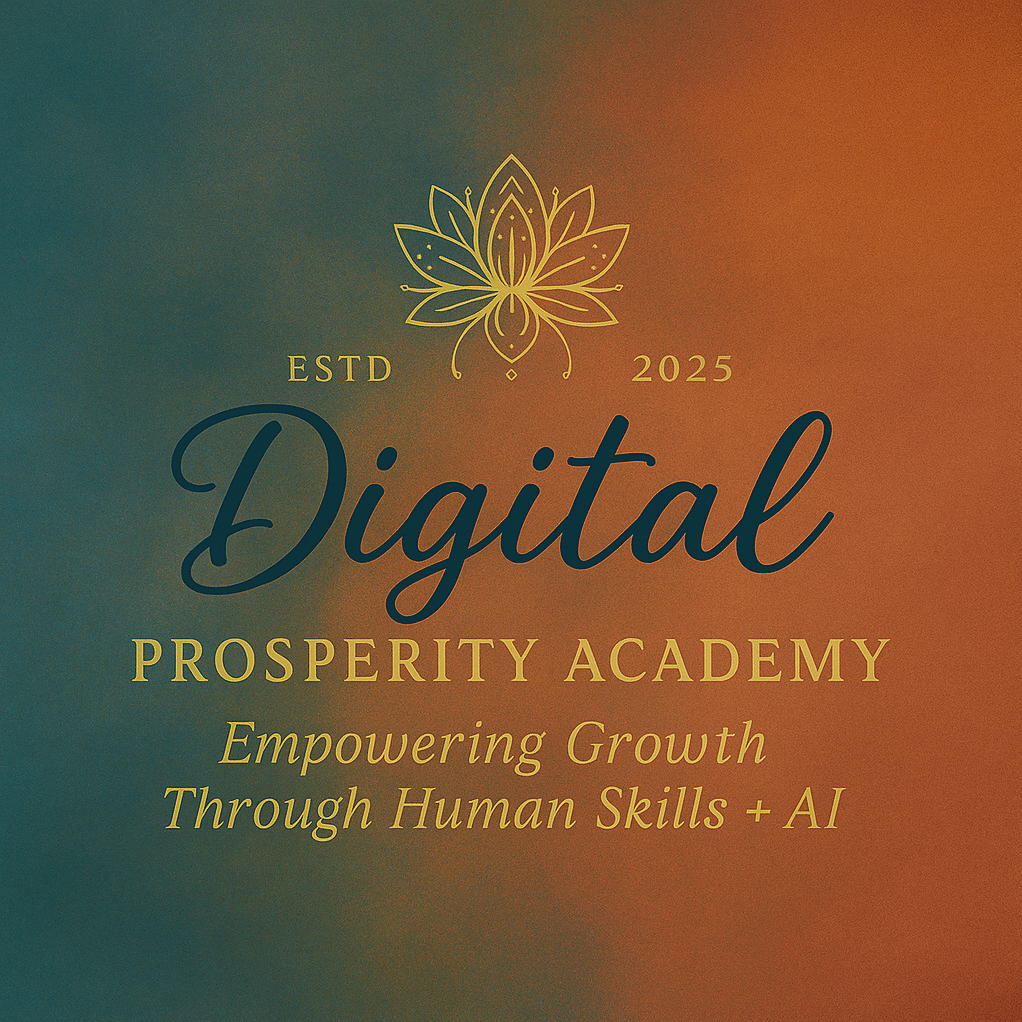From Burnout to Balance: The Emotional Reset Healthcare Workers Deserve
By Digital Prosperity Academy
Working in healthcare often feels like running on empty with your heart full. The job asks for everything—your mind, your body, your emotions—and some days, it’s just too much. If you’re feeling stretched thin, emotionally zapped, or stuck in survival mode, this post is for you. We’re here to help you reset, not hustle harder.
Soft skills may not show up on your shift checklist, but they might just be your most powerful tools. Whether you’re at the bedside, behind the scenes, or holding someone’s hand through their hardest moment—empathy, communication, and emotional awareness help keep you grounded.
And here’s the thing: tools like MayaMaya are popping up to support healthcare workers in building those very skills. It’s not about adding to your workload. It’s about working smarter with your emotional bandwidth. When you’re centered, everything else gets better.
Why Soft Skills Are the Real Lifesavers
Every badge-wearing, burnout-worn clinician has one thing in common—they’re human. And being human means your emotional capacity needs as much care as your clinical skill set.
Soft skills aren’t fluff. They’re fuel.
They help you:
- Stay emotionally centered in chaotic environments
- Connect meaningfully with patients and peers
- Protect your energy through clear communication and boundaries
- Find purpose again when you feel like you’re losing yourself in the grind
Tools like MayaMaya offer guided nudges that help strengthen these muscles—one mindful moment, one emotional “a-ha,” one deep breath at a time.
Let’s Name It: Burnout Isn’t Just “Being Tired”
Burnout is when your brain says, “I’m done,” and your heart quietly agrees. It’s when you’re too numb to care and too exhausted to fix it. That’s not a weakness. It’s a signal.
Here’s what that signal might look like:
- You’re snapping at coworkers for no real reason
- You’re there but not present
- You’ve stopped feeling proud of your impact
If that sounds familiar, you’re not broken—you’re overdue for balance. Awareness is step one. Creating space to breathe, feel, and reset is step two. Let’s talk about how.
Real-Life Resilience: Small Steps, Big Relief
Start here. No big overhaul needed.
- Micro-Mindfulness: One deep breath. One quiet pause between patients. It counts.
- Tiny Wins: Check off three manageable goals a day. That dopamine hit? It helps.
- Predictable Routines: Chaos is a given. Structure creates sanity.
- Talk it Out: Whether it’s with a peer, a mentor, or your dog—don’t bottle it up.
MayaMaya’s modules offer structured but gentle practices for resilience-building—like emotional coaching that actually fits into your day.
The Common Battles: And What You Can Actually Do About Them
Time Pressures? Prioritize, pause, and pivot. You can’t pour from an empty cup.
Stress Piling Up? Release some of it with humor, deep breaths, or power walks.
Communication Struggles? Practice saying the hard thing kindly and clearly.
No Boundaries? Time to draw a line. It protects everything else.
These aren’t new ideas. But when they’re baked into your daily flow—through tools, prompts, or real-time coaching—they can radically shift how you show up.
Level Up: Advanced Soft Skills for When You’re Ready to Thrive
Once you’re not drowning, you can start swimming.
- Emotional Intelligence: Spot your own triggers, read the room, respond instead of react.
- Delegation & Trust: You’re not meant to carry it all alone.
- Conflict Repair: Learn to de-escalate with grace. That’s real power.
Platforms like MayaMaya are designed to walk you through these, step by step. They’re like having a coach in your pocket—not a nagging one, but a wise, calming one.
The Non-Negotiables: Core Soft Skills Every Caregiver Needs
- Empathy – For others and for yourself
- Self-awareness – Knowing your limits isn’t weakness, it’s wisdom
- Compassion – Especially on the days you fall short
- Clarity in Communication – No mind reading needed
- Resilience – Built through repetition, not perfection
You don’t need to be an emotional superhero. Just someone willing to slow down and listen inward.
FAQ Time: Quick Answers, Honest Talk
Q: Can soft skills really help with emotional overload?
Yes. They don’t erase stress—but they help you meet it with clarity instead of collapse.
Q: Is formal training required?
Nope. Apps, conversations, reflection—even journaling help you grow these organically.
Q: What’s the role of leadership?
Leaders set the tone. If your higher-ups value emotional support, your whole team feels it.
Your Recharge Plan: Build a Life That Fills You Up, Too
We’re not meant to run on empty. Your emotional gas tank needs regular refueling. What does that look like?
- Quiet time away from the noise
- Stretching your body, not just your shift
- Reading, journaling, laughing
- Reaching out—not powering through alone
- Saying, “I matter, too.”
Let that be your mantra. If tools like MayaMaya can support you in that journey, even better.
Final Take: You’re Not Alone—You’re Worth the Balance
You’re here. You’re still standing. And that means you’ve got the grit. But grit doesn’t mean pushing until you break. It means knowing when to rest, reflect, and rebuild.
This isn’t about perfection. It’s about permission—to care for yourself with the same compassion you give everyone else.
Let’s normalize self-kindness in healthcare. Let’s make soft skills not just a nice-to-have, but a must-have. Let’s lean into the tools that help us feel human again—like MayaMaya. Because balanced, emotionally healthy humans? They make the best caregivers.
#BurnoutRecovery
#HealthcareHeroes
#SoftSkillsMatter
#EmotionalResilience
#MayaMayaInAction
#WellnessAtWork
#MindfulMedicine
#BalanceNotBurnout
#SelfCareForCaregivers
#MentalHealthInHealthcare
#HealthcareHeroes
#SoftSkillsMatter
#EmotionalResilience
#MayaMayaInAction
#WellnessAtWork
#MindfulMedicine
#BalanceNotBurnout
#SelfCareForCaregivers
#MentalHealthInHealthcare
